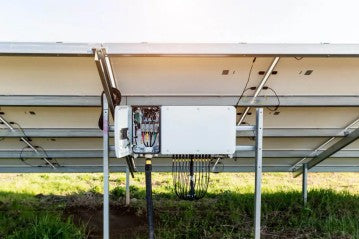
Lithium batteries have become the preferred choice for solar energy storage due to their high energy density, longer lifespan, and low self-discharge rate. Efficiently charging these batteries is crucial to maximize their performance and longevity. In this blog post, we will explore different methods of charging lithium batteries, with a focus on solar energy applications. Whether you're a solar energy enthusiast or considering purchasing solar-related products, this guide will provide valuable insights on how to charge your lithium battery effectively.
1. What is a Battery Charger?
Before delving into the specifics of charging lithium batteries, it's important to understand what a battery charger is. A battery charger is a device that supplies electric current to recharge a battery. It ensures the battery receives the correct voltage and current levels required for optimal charging, while also safeguarding against overcharging or undercharging.
2. How to Charge Lithium-ion (or LiFePO4) Batteries?
Lithium-ion and LiFePO4 batteries are the most commonly used lithium battery chemistries for solar energy applications. Here are four effective methods to charge these batteries:
(1) Using Solar Panels
Utilizing solar panels to charge lithium batteries is an environmentally friendly and sustainable approach. Solar panels convert sunlight into electrical energy, which can be used to charge the battery. To implement this method, you will need a solar charge controller, which regulates the charging process and prevents overcharging.
The solar charge controller acts as an intermediary between the solar panels and the battery, ensuring a consistent and optimal charging voltage and current. It monitors the battery's state of charge, adjusts the charging rate accordingly, and protects the battery from overvoltage or deep discharge. By employing a solar charge controller, you can safely and efficiently charge your lithium battery using solar energy.
(2) Using a DC to DC Charger
A DC to DC charger is another effective way to charge lithium batteries, particularly in off-grid solar setups. This charger takes the direct current (DC) output from a power source, such as a solar panel or a generator, and converts it to the appropriate voltage and current for charging the battery.
When using a DC to DC charger, it's essential to select a charger specifically designed for lithium batteries. These chargers often incorporate advanced charging algorithms and protection mechanisms to ensure safe and efficient charging.
(3) Using an Inverter Charger
Inverter chargers are commonly used in grid-tied solar systems with battery backup. These devices not only convert the direct current (DC) produced by the solar panels into alternating current (AC) for powering your home but also provide battery charging functionality.
An inverter charger can intelligently manage the charging process, prioritize the usage of solar energy, and automatically switch to grid power when needed. This versatility makes it an excellent choice for charging lithium batteries in residential or commercial solar installations.
(4) Using a Solar Lithium Battery Charger
If you have a smaller-scale solar system or need a portable charging solution, a solar lithium battery charger is a convenient option. These compact devices integrate solar panels and charging circuitry into a single unit, allowing you to directly charge your lithium battery.
Solar lithium battery chargers often feature built-in charge controllers and USB ports, enabling easy connection and compatibility with various devices. They are an excellent choice for camping, outdoor activities, or small-scale off-grid applications.
3. Can I Charge a Lithium Battery with a Normal Battery Charger?
No, it is not recommended to charge a lithium battery with a normal battery charger designed for other battery chemistries. Lithium batteries have specific charging requirements, and using an incompatible charger can lead to inefficient charging, reduced battery life, or even safety hazards.
Lithium batteries require precise control of voltage and current during the charging process, which normal battery chargers may not provide. Additionally, lithium batteries can be sensitive to overcharging or exposure to extreme temperatures, and a dedicated lithium battery charger incorporates protective mechanisms to prevent such issues.
Conclusion
Effectively charging your lithium battery is crucial for maximizing its performance and lifespan. Whether you choose to charge your battery using solar panels, a DC to DC charger, an inverter charger, or a solar lithium battery charger, ensure that you select the appropriate charging method and equipment designed specifically for lithium batteries. By following these guidelines, you can harness the benefits of solar energy and optimize the use of your lithium battery, contributing to a sustainable and efficient solar energy system.
Shop high-quaily lithium batteries now:
Powerwall 100Ah 51.2V LiFePO4 Energy Storage Battery
Powerwall 100Ah 48V Lithium Energy Storage Battery - Max Parallel 15 Unites

0 Kommentare